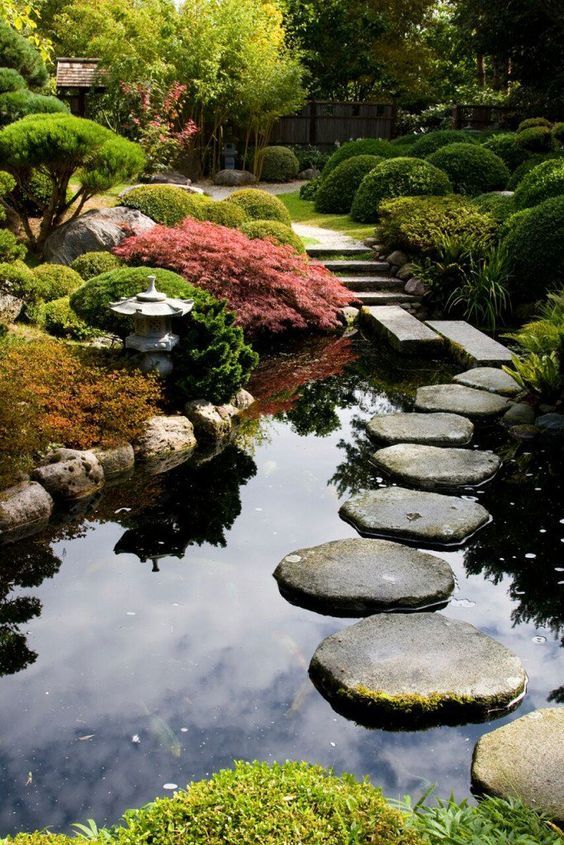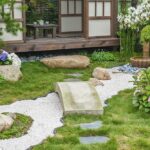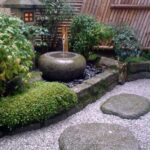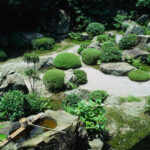Japanese garden design is known for its serene, tranquil and balanced aesthetics. It is deeply rooted in Japanese culture and tradition, with the designs often inspired by Zen philosophy. These gardens are meticulously planned spaces that aim to create harmony between nature and human presence.
One of the key elements in Japanese garden design is the use of water. Water is considered a vital element that signifies life and energy. Ponds, streams, and waterfalls are often incorporated into the design to create a sense of calmness and serenity. The sound of flowing water and the reflection of the surroundings add to the overall peaceful ambiance of the garden.
Another important feature in Japanese garden design is the use of rocks and boulders. Rocks are symbolic of strength and permanence, and are strategically placed to create focal points within the garden. These rocks are carefully selected and arranged in a way that mimics natural landscapes, such as mountains, valleys, or islands. They serve as a reminder of the fleeting nature of life and the importance of living in the present moment.
Plants also play a significant role in Japanese garden design. The use of lush foliage, trees, and flowers adds a sense of tranquility and beauty to the space. Bamboo, cherry blossoms, pine trees, and moss are commonly found in Japanese gardens, as they hold special cultural significance and add to the overall aesthetic appeal. Plants are often pruned and manicured to create a sense of order and balance within the garden.
Another important aspect of Japanese garden design is the use of bridges, pathways, and gates. These elements are used to guide visitors through the garden, creating a sense of movement and discovery. Stone pathways, wooden bridges, and traditional gates are often incorporated into the design to create a sense of transition from one area to another. These structures also serve as architectural focal points that add to the overall beauty of the garden.
In conclusion, Japanese garden design is a harmonious blend of nature, art, and spirituality. These meticulously crafted spaces are designed to evoke a sense of peace, serenity, and mindfulness. By incorporating elements such as water, rocks, plants, and architectural features, Japanese gardens create a unique and tranquil environment that reflects the beauty and simplicity of Japanese culture.
















